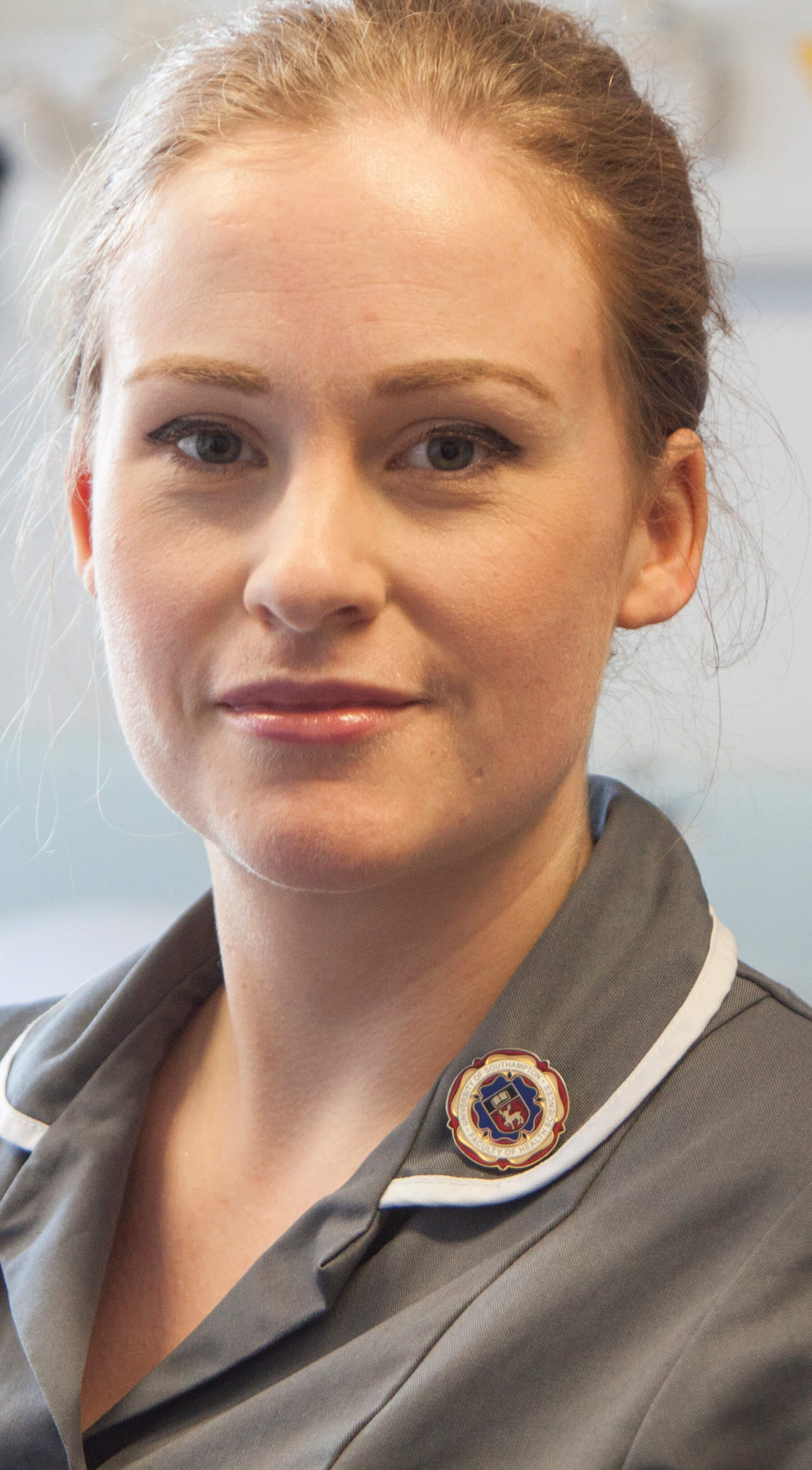I joined the Southampton Clinical Research Facility nursing team three weeks ago.
Impressions are positive and my working day completely different to the first four and a half years of my nursing career in acute surgery. I have found myself in a well organized team in which contributions are valued and considered. Interactions between colleagues and research participants are relaxed and positive.
expectations

Starting work in a CRF was quite the contrast to the four and half years of acute care I have moved on from. Acute surgery had become a place of comfortable competence and familiarity. Since qualification, it has been my nursing world.
My work family there had made a variety of predications. Some that I would be “bored”, my skills lying dormant, “back within a week”, or that I’d “be so happy I wouldn’t know myself”. Others, that I’d “drown in paperwork and lose the will to live”, or, on the other hand, it would “suit me well because of my academic aspirations”. So, I really had no consistent advice to go on other than my own gut feeling being a positive one based on the team I had met at interview and briefly during a visit I made prior to interview eleven weeks ago.
first day
Walking in on my first day, with the rustle of my crisp new uniform reminding me of my newly qualified days, I had some idea of what I would be doing for the first day. I had a two week induction program to refer to which was a great comfort to the fear that I may feel like a lemon in a bag of limes half the time. I was given tours and introductions and was pleasantly surprised to see how quickly I was given access to the necessary systems, so whatever happened I could always sit down and trawl through the mountain of SOPs I had to read on Q-Pulse. Induction is clearly a well oiled machine, lemon and lime factor considered.
Where the paperwork is extensive, the reasons why become clearer and a lot of the SOPs confirm or build upon what I already know. Gone is the disconcerting ambiguity that comes with the variations in practice and difference of opinion. That is not to say we are all mechanical and unthinking. Quite the contrary, time is available for queries to be discussed, ideas thrown in and a way forward agreed upon.
I see this in a meeting on my first day. The logistics of a new study discussed at length. I see colleagues who clearly value each other making ready contributions to the planning effort. Concerns are raised as just that, there are no egg-shell egos to tip toe over, best intentions are clear in this room.
Shadowing participant visits is like being a student nurse again. Working out where to stand is the hard part for second, but then my colleague suggests where to sit and explains what will happen and presents a print out of the patient information sheet. I don’t even have to ask, my needs as a learner have been anticipated and I shake hands with the new participant and her husband with my new research colleagues as she enters the room. I am humbled to see her willingness to give her time to us, to research and the benefit of others. There is a positive air in the room as the participant shows genuine interest in what the research team is doing and this is not the first time I will see this in my first week, and those following.
Taking lunch at lunchtime… now that’s novel. I’m normally still eating donuts and granola squares at 12:30, at a speed which allows for no recollection of taste. But here we eat lunch at lunchtime. We all sat around an umbrella table for half an hour, eating, making eye contact and conversation. My mobile phone, unnoticed and unrequired.
At lunch on a rainy day I find my boss and the senior sister in the staff room with the rest of my new colleagues, there is no sisters office, it is open plan right down to eating lunch. No dining al desko round here. ‘Hows it going? And How are you getting on?’ punctuate the chatter as I squeeze into a spot between blue and white piped uniforms. A few tips and pointers follow my responses and the chatter blends to holidays, wedding planning and binge watching the great British bake off.
Clinical Practice
Visits in the CRF are more comfortable as the week goes on. I relax and enjoy chatting with the participants and realise how much I miss patient contact and clinical practice. Now I am starting to be able to contribute little things like fetching water and cleaning rooms post visit as I remember more and more of where things are in this modern warren. I don’t feel as useful as I can be but it’s something. I offer to do these things as my colleagues are too polite to ask.
I am surprised the cough box test is collected in a short plastic champagne flute and involves no coughing. Again, that a nasal wash is tolerated, by anyone, when my experience is of some patients flinching at the tickle of an MRSA screen. Taking a patients weight is like the hokey cokey and the scales are held together without the use of tape, tags or tourniquets. The CRF is spacious and well stocked. The only older style equipment I’ve noticed are the foot pump beds. So, it is nice to see we’re not spoiled and practices are not wasteful, even if we are lucky enough to have a toaster and a dishwasher. The latter is a luxury I don’t even have at home.

Learning new Skills
I am no longer concerned that my skills will lay dormant as there are new ones to fill the gap. I get to keep one of my favorite skills, cannulation and taking bloods with a great many new sample taking skills to observe and learn. Replacements are more scientific, containers, swabs and green top blood bottles that I have never seen before. Novelty is more refreshing than I anticipated.
A role reversal occurs when I supervise a colleague taking bloods and cannulating. I flip from learner to teacher to learner again. There is troubleshooting to coach as my colleague hits a valve. I am conscious to be respectful in my coaching as I am the newbie and my colleague is teaching me for all but these five minutes. It’s a happy exchange of skills and it felt good to contribute in a tangible way. My colleagues have clearly noted where I’ve come from and what experience I have in their welcome. It is things like this that make me feel valued. It is nice to be asked, to be given the opportunity to contribute.
I get the impression that my colleagues are sympathetic to my plight of endless reading, training and temporary practice restriction.
They reassure me without prompting that working in the CRF gets really brilliant after two or three months. I hide my surprise at this comment as already I am learning new skills, am anything but “bored” and “so happy I don’t know myself”.




